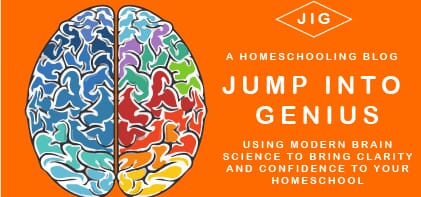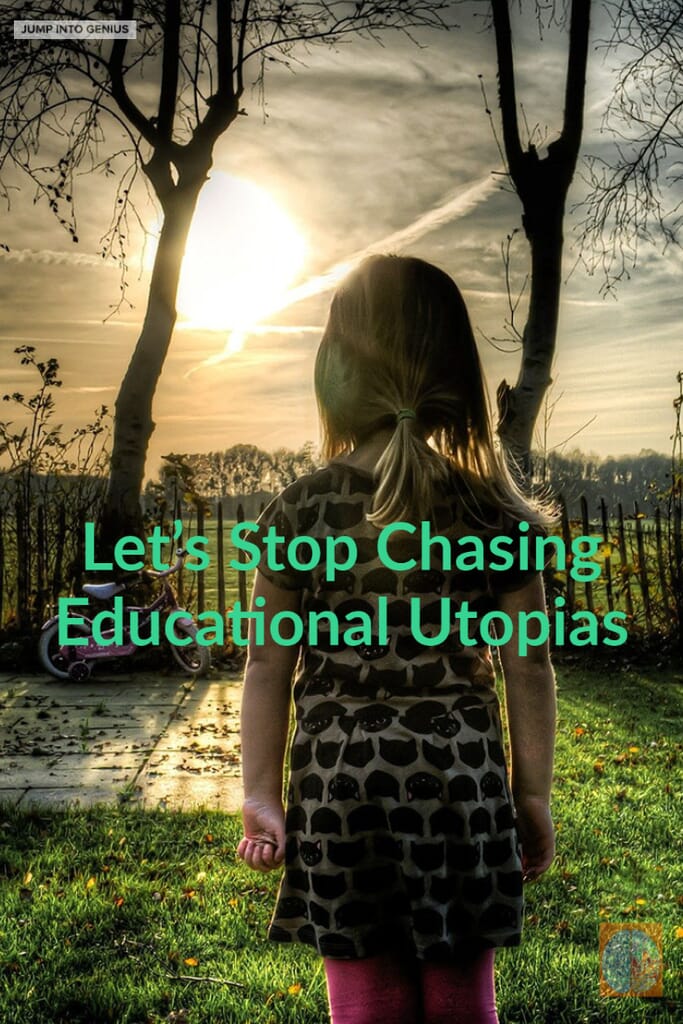When we obsess about finding the perfect way to educate our children, we get lost in the search. In the meantime, our children’s education is less than it could be, not because we didn’t try our best, or because we chose the wrong educational philosophy, but rather, because we were so obsessed with theories we forgot to look at our children, to listen to our children, and to create an educational environment in which they will thrive.
When we get lost in arguments about how to educate children, we lose our educational freedom.
Comparing educational theories and philosophies can be a lot of fun, I love a good book that dives into the richness of how children learn. But I find many of these theories leave much to be desired when they hit the road of real life. And all of them seem to think they have discovered some great secret code that everyone else needs to follow, which at this point in my life gives me the same visceral reaction as a toddler sneezing all over my face. Yuck.
Freedom can be overwhelming
When you make the choice to homeschool, you open yourself up to a million more choices. That is a good thing, we humans are made for freedom. But sometimes we get so lost in the choices we create a storm instead of pulling up a lounge chair and enjoying the sunshine.
The number of choices and decisions to be make seems endless, and in an attempt to stop the overwhelming number of decisions we looked for a pre-wrapped solution. Surely, someone else can just tell us what to do? Then we find all these prettily wrapped ideas that can guide you. Soon you are jumping into a box. But I think there is more to be gained by shedding the need for a prettily wrapped box. I know it is cozy and comforting in there, but it is also dark and confining.
Sure, foregoing that box gives us even more choices, more freedom, and leaves us feeling guideless, which can seem daunting. When you step out of the box, you are often slapped across the face with sunshine and wind, and bright colors and you may weep, not for joy at the beauty, but from the overwhelming of senses which are used to being crammed into filtered places.
Don’t let those tears fool you. Stepping out of the box is a good thing, your eyes will adjust and one day you will suck in that sunshine and wind and your weeping will turn to joy. Your overwhelm will be transformed into a quiet, confident, contentment. The contentment that can only come when you have had to courage to do the right, hard thing, and have survived to know that it was good.
The guide you need doesn’t come in a prettily wrapped box
Because our best guide for educating our kids is listening to them, digging within ourselves to grab that golden nugget of parental intuition, and a bit of knowledge about how the brain learns. With those three key ingredients, our child’s education may not look like any other child’s. But it will be exactly what they need.
Even with my own kids, their education is not a copycat of what big brother or sister did in such-and-such a grade. What a waste of human time and talent it would be for me to shove them all through the same ideas, the same assignments, the same books, at the same time.
That doesn’t mean that there is nothing in common. Some books are worth reading, and everyone reads them, or I read them aloud. Some topics are basic knowledge and every one of my kids will get that knowledge, but maybe in a different grade, maybe with a different curriculum or book. Maybe through a different subject lens. Some of my high school kids will complete college level calculus before they graduate high school, and some will only get through algebra 2. Because that is what they need.
Imperfect world, imperfect parents, imperfect children, why would any formula of education be able to take these things and equal perfect?
We lose the ability to create an education for the person our child is when we obsess over educational utopias.
There is no perfect way to educate a child. You will not gain bliss by discovering some hidden secret or formula of education.
The grass is not greener on the other side of the fence.
Some parts of education will always be hard. Your child may always struggle with a specific subject, no matter what methods or curriculum you use. There is no curriculum that can magically make your days run smoothly or your children suddenly get smarter. There is no course and sequence that can guarantee your child will be successful and make a lot of money when they grow up.
Some days learning can seem complicated. Other days your child presents you with facts you never taught them and you are surprised by how much they know. When did they learn that?
This will be true no matter what educational philosophy you adopt, what curriculum you use, or how many hours a day you focus on academics. The questions we need to spend our time on our these.
- Who is my child?
- What does my child need right now?
- Answering these questions will do more for your child’s future than any educational utopia could ever imagine possible.
Our culture is obsessed with education, yet we do it very poorly. Becoming more obsessed will not make us better at educating our kids. The only thing that will make us better is listening to our kids and treating them like human persons instead of objects to be molded at the will of whatever system we decide will make the prettiest sculpture…

